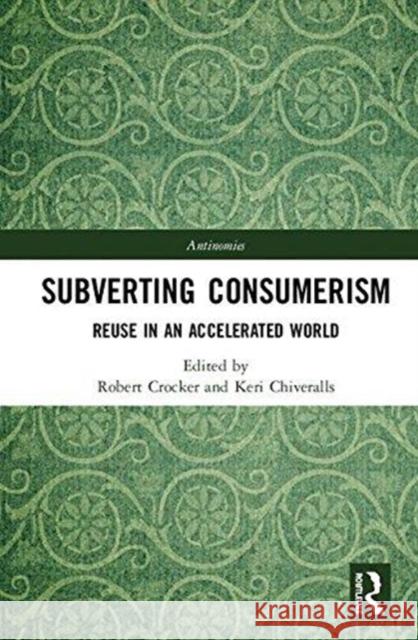Subverting Consumerism: Reuse in an Accelerated World » książka
Subverting Consumerism: Reuse in an Accelerated World
ISBN-13: 9781138189096 / Angielski / Twarda / 2018 / 246 str.
Subverting Consumerism: Reuse in an Accelerated World
ISBN-13: 9781138189096 / Angielski / Twarda / 2018 / 246 str.
(netto: 791,35 VAT: 5%)
Najniższa cena z 30 dni: 755,61
ok. 16-18 dni roboczych.
Darmowa dostawa!
The dominant understanding of reuse for sustainability is a technical one, which assumes reuse's benefits are limited to the new material, energy and emissions avoided by repurposing, but reuse is much more than that. Reuse and repurposing have always been part of human engagement with objects and spaces. Thus reuse and remaking are important topics in sustainable design, architecture, cultural studies, anthropology, and the sociology, economics and politics of consumption. Given our current environmental crises and the unsustainable expansion of global consumerism in an age of social and technological acceleration, the social and cultural impact of reuse or repurposing upon consumption practices in everyday life is particularly important. In design, reuse has more than a symbolic, social or cultural value. Reuse protests against and subverts the dominance of a 'waste-ready' accelerated newness in contemporary consumerism. Reuse establishes more durable and culturally specific relationships with objects and spaces, and more stable identities at a time of continuous and rapid change. Subverting Consumerism: Reuse in an Accelerated World is the first book to explore the three major facets of reuse: its meaning and aesthetics, the affects and effects of design for reuse, and reuse as a changing social practice. Drawing on examples from Africa, Europe, North America, Asia and Australia, it engages with ideas and theories informing current reuse practices in our accelerated world and sets the scene for understanding how we are mining the past to reshape the future.











